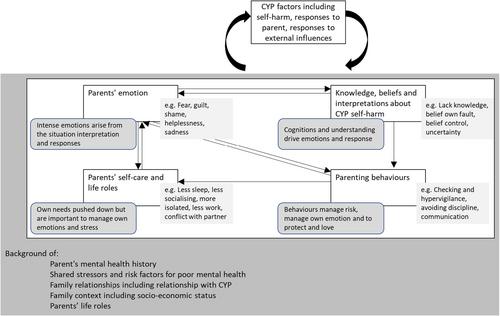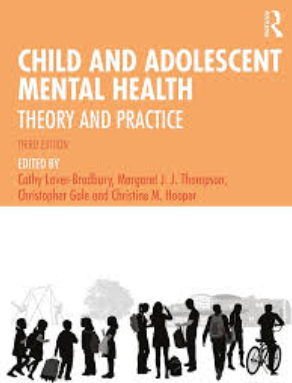Understanding the impact of children's and young people's self-harm on parental well-being: a systematic literature review of qualitative and quantitative findings
Abstract
Background
Self-harm in children and young people is increasing. Parents are vital in supporting young people; however, parents may experience distress linked to the self-harm. Previous reviews have highlighted the emotional impact and need for information and support, however, have not elucidated the relationships between these themes, nor examined the quantitative data examining parents' well-being.
Methods
We conducted a mixed methods review, with qualitative meta-synthesis focusing on links between themes and quantitative synthesis of parental well-being findings, including pooled means. PsycInfo, Medline, EMBASE, AMED, CINHAL and Web of Science were searched to identify relevant records. References of included studies were also searched. Every abstract was screened by two authors. Data were extracted by one author and checked by another.
Results
We identified 39 reports of 32 studies: 16 with qualitative data and 17 with quantitative data (one had both). Qualitative findings showed how parents' emotions were associated to their knowledge and beliefs about self-harm. Parents' emotions often evidenced the need to self-care, but emotions of guilt reduced engagement in self-care. How parents supported their young person was linked to their knowledge, and the management of their own emotions, and influenced if they could engage in self-care. Quantitative findings were mixed, however suggested poor general mental health amongst these parents.
Conclusions
Further good quality quantitative studies are needed, with measurement of psychological mechanisms that may underpin parental distress. Current evidence supports peer-support and interventions that go beyond information provision to address the connected factors of knowledge, emotion, self-care, and parenting behaviours.


 求助内容:
求助内容: 应助结果提醒方式:
应助结果提醒方式:


